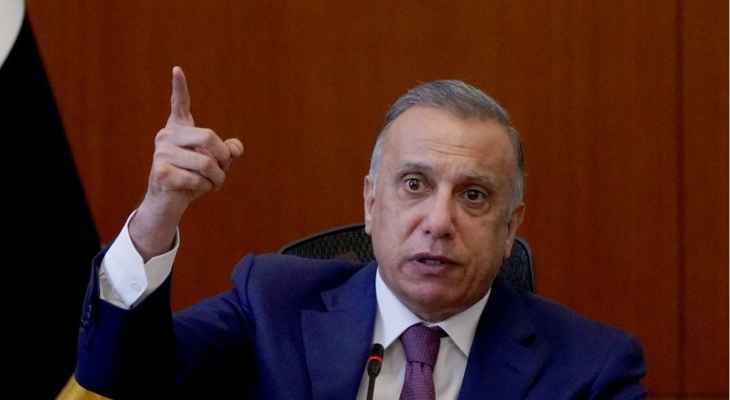Iraqi Prime Minister Mustafa al-Kazemi said that “the agenda of the Saudi conference, to which we received an invitation in the presence of the Gulf Cooperation Council, Iraq, Egypt and Jordan, in addition to the United States, America, will discuss cooperation in the fields of economy, energy and the challenges it faces.” This was caused by the coronavirus pandemic, the food security crisis, and climate change.
In his statement, he pointed out that “other talk about the goals of the summit is an attempt to confuse and is completely untrue, and this is an attempt to distance Iraq from the prominent role it plays in the region, and for this government to fulfill its tasks in serving the people and attracting investment. and support for the benefit of Iraq”, noting. “We’re going to a conference in Saudi Arabia, and we’re focusing on water and climate change, energy and telecommunication partnerships, and economic partnerships and joint investment, all of which are good for the Iraqi people and great support for investment projects in Iraq.”
Al-Kazemi emphasized that “Iraq comes first, this is our policy and our slogan, and some try to point out false fears and prevent us from building relationships with our brothers, as if Iraq is not at the center of history and is not the meeting point of civilizations on For millennia, Iraq has been in a strategic position that allows it to be efficient and integrated with others, and to have good relations with its brothers, neighbors and friends for the benefit of the Iraqis.
He emphasized that “Iraq’s position on the Palestinian issue is firm and clear, and we are not part of any axis or alliance in the region, and Iraq pursues a balanced policy with its neighbors and its environment, based on its national and humanitarian principles, noting, that “this government found itself in difficult economic conditions, and we overcame them, and the economic indicators of the World Bank confirm that Iraq managed to overcome this crisis in a very short time and present us with the vision of economic reforms presented in the white paper.
He emphasized that “there was a clear isolation of Iraq in its external relations and it suffered from this for a long time, and because of the wrong policy, Iraq has isolated itself from the world, and this has affected many of its infrastructures, education and society, and has been reflected in wars and sanctions for which the Iraqi citizen has paid the price.” He stated that “after 2003, the policy of isolation continued for a number of reasons, and, thank God, Iraq managed to end the isolation and assume its natural role in relations with the countries of the region and the world.”
Al-Kazemi also pointed out: “Today we live in a different world, not only at the level of technological development, but also at the level of the nature of governance and government policies. Relationships and common interests have become the ones to propose projects to combat unemployment, desertification and the environment, and such projects require cooperation with others.” He explained that “therefore the trend was to open up to the world, so that Iraq quickly turned from an isolated member from the world into an effective element of relations, and from this point of view, we held conferences in Baghdad, mediation between more than one country in Iraq, the majority of which they succeeded.
Source: El Nashra
